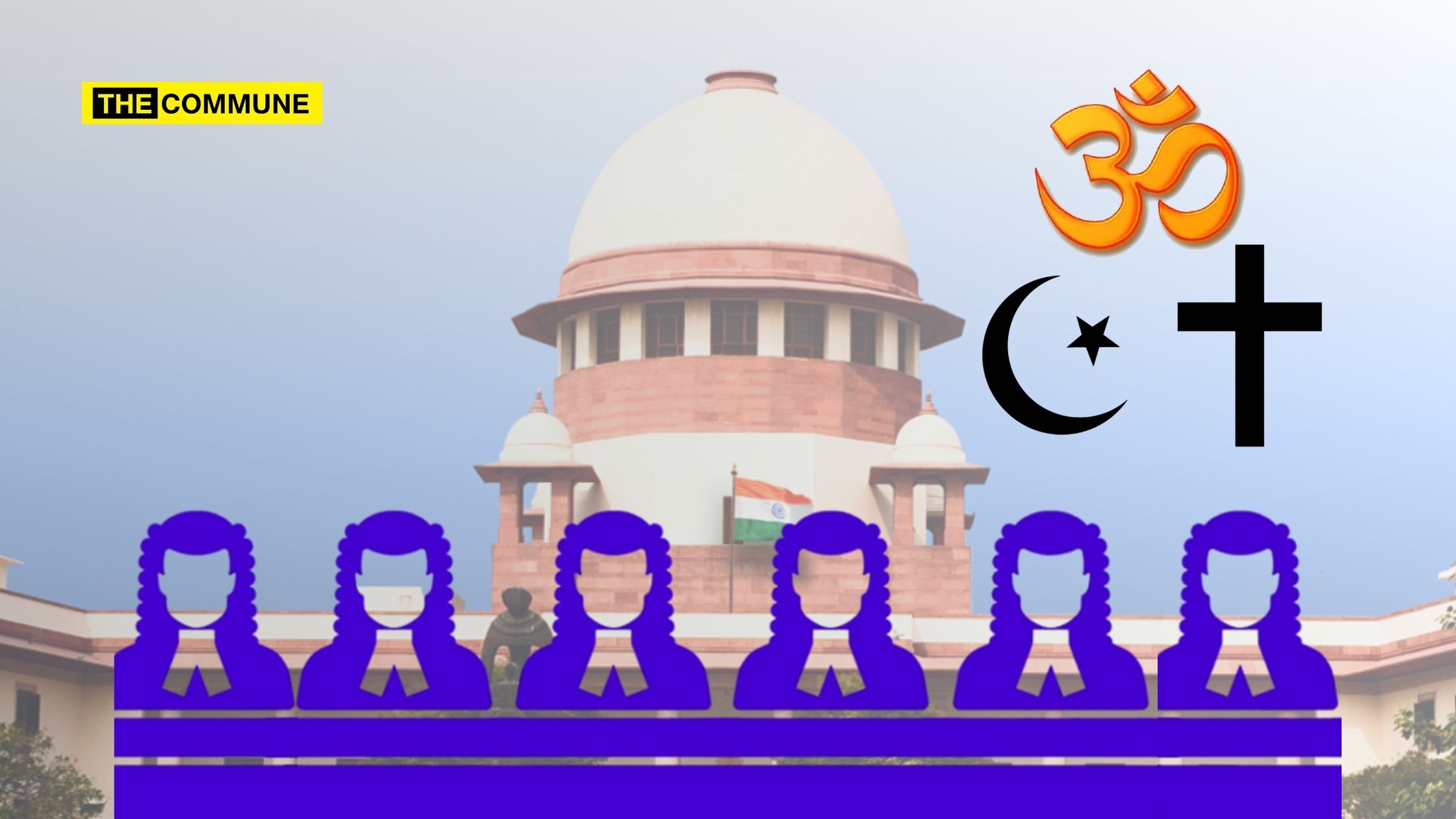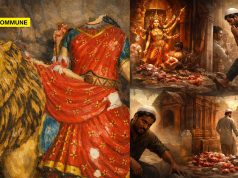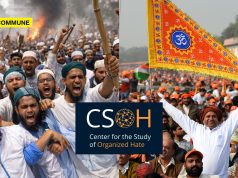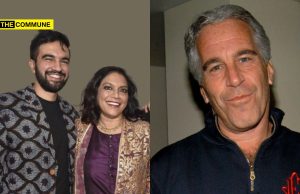
The Supreme Court’s recent validation of the Emergency-era insertion of the word ‘secular’ into the Constitution reignited a contentious debate: is secularism in India a shield of equality or a sword of appeasement wielded selectively against Hindus? Under the guise of secularism, Hindu temples are plundered under government control, religious autonomy is granted selectively, and minority appeasement thrives unabated.
When “fraternity” becomes fractured, “equality” becomes skewed, and “liberty” becomes a privilege of the few, it is imperative to question whether secularism has lost its way, becoming an albatross strangling the very ideals it was meant to uphold.
The Supreme Court (SC) pronounced its verdict on 25 November 2024 on a July 2020 petition challenging the insertion of the words ‘secular’ and ‘socialist’ during the Emergency period by upholding the insertions as valid.
Since ‘socialism’ is a politico-economic ideology, let us set it aside for this discussion and instead delve into the dissonance within this verdict and its implications.
It’s notable that that many of the amendments during the Emergency era, including clauses 4 & 5 of the 42nd Amendment, were repealed by the SC, the landmark one being Minerva Mills Ltd. and Ors. v. Union Of India and Ors. (case number: Writ Petition (Civil) 356 of 1977.
The verdict restored the constitutional validity of the courts/judiciary, reaffirming that Parliament does not hold absolute power, particularly in matters concerning fundamental rights.
With due respects to the Supreme Court and its eminent lordships in the highest regard, it is troubling to note that amendments made during the Emergency era concerning the judiciary are deemed highly relevant, whereas those addressing the concerns of the general public and victims of ‘secularism’ are often sidelined, citing the timing of such pleas.
From the political viewpoint, it is a not a clandestine affair that the word ‘secular’ encompasses not compassion for minorities of the country but sheer appeasement, right from the time of independence.
On 17th October 1949, Shri Brajeshwar Prasad, a senior congress leader from Bihar, during discussions in the constituent assembly on the Preamble and Constitution said:
‘this word, ‘secular’ was dear to India’s national leaders and its inclusion in the preamble would tone up the morale of minorities as well as prevent disorderly activities’
Although the word ‘secular’ was not part of the original Constitution, it is now frequently invoked to benefit minority communities, often to the detriment of the majority Hindu community and its practices.
The Hon’ble Lordships have observed that the term ‘secular’ is “considered imprecise,” noting that some scholars interpret secularism as being opposed to religion. This ambiguity becomes more evident in states like Tamil Nadu and Andhra Pradesh, where the Hindu community faces neglect and, at times, disdain from the state and its rulers.
Hon’ble Lordship goes on to say: “India has developed its own interpretation of secularism, wherein the State neither supports any religion nor penalises the profession and practice of any faith”. The ideals espoused in the Preamble — fraternity, equality, individual dignity and liberty among others — “reflect this secular ethos”,
Let us corroborate these golden words with reality:
Fraternity
The contempt that the current ruling party in Tamil Nadu – the DMK, and the former ruling party in Andhra Pradesh – YSRCP, display toward Hinduism and its practices needs little explanation. Whether it is Udhayanidhi Stalin, a self-proclaimed atheist/pro-Christianity, wanting to eradicate Sanatana Dharma (Hinduism), or the Andhra Pradesh government’s alleged involvement in the adulteration of the Tirumala Laddoo, their actions consistently undermine social fabric of the country. This is how the state expresses its commitment to ‘fraternity.’
It is worth highlighting MK Stalin’s speech, where he disparaged Hindu marriage rituals while praising similar practices in other religions. Ironically, in a bid to secure votes, he later declared that 90% of his party’s members are Hindus.
Not to forget their skullcap fantasies during nights of crescent sky and penchant for cakes on starry December nights.
Equality
The condition of temples under Tamil Nadu’s HR&CE Department offers a striking example of the government’s skewed interpretation of ‘equality’ within the Dravidian Model, especially when compared to the autonomy enjoyed by other religious institutions. The ruling dispensation routinely exploits temple funds as if they were its own, and, on occasion, unlawfully appoints non-Hindu personnel to key temple positions, undermining both tradition and legality.
Individual Dignity
DK the parent dupery and inspiration of ruling DMK take pride in cutting the sacred threads of the Brahmins in early 1970s. So much for ‘individual dignity’, the cowardly act still continues to this day when a 24-year-old Brahmin boy from Palayamkottai, Thirunelveli faced the wrath of these rogues in September 2024 was however denied by police.
Liberty
The list of arrests by the DMK government in Tamil Nadu after their election to power in 2021 is long and still extending. Actor Kasthuri faced a brief jail term for her dinky comment in a stage protest, arrested by a battalion of police.
While Mubin, accused of Coimbatore blast is a Voldemort whose name should not be spelled out. The Dravidian Model government still calls it a cylinder blast!
People who make insignificant comments on the government policies or criticize rightfully are facing gallows, resembling medieval United Kingdom under fascist King Charles III.
The torchbearers of liberty in Tamil Nadu cannot even protect the downtrodden people like in Vengaivayal, who are still waiting justice for an insensate act against them, while the perpetrators are still at large.
We would like to humbly request the judiciary, where the so-called fraternity, equality, individual dignity and liberty are in practice, let alone other words that echoes fundamental rights.
The judiciary must carefully consider the nature of the faiths with which they expect the Hindu community to coexist harmoniously. Temples and places of worship have faced challenges from multiple fronts. On one hand, there are faiths that oppose idolatry—the very essence of Sanatana Dharma—as illustrated by this passage:
“All who fashion idols are nothing, and the things they delight in do not profit. Their witnesses neither see nor know, that they may be put to shame. Who fashions a god or casts an idol that is profitable for nothing? Behold, all his companions shall be put to shame, and the craftsmen are only human. Let them all assemble, let them stand forth. They shall be terrified; they shall be put to shame together.” (Isaiah 44:9–20)
On the other hand, we have another faith, who doesn’t need to enter Hindu administrations but can claim a 1,500-year-old temple in Trichy, Tamil Nadu as their own. In fact, they had the liberty of claiming any land they like, thanks to the Waqf Amendment Bill 1995 brought by Congress government. Their faith enclosed in a single book, God and messenger calls for violence against idol worshippers. (Surah At-Tawbah (9:5)
The word “secular” has, over time, increasingly become a redundant and burdensome concept within the Indian Constitution, with its application disproportionately falling upon the Hindu community. While the Constitution enshrines the right to freely profess, practice, and propagate religion under Article 25, this provision seems to shine brightly for certain religious groups, who are allowed to exercise their faith without undue hindrance. In contrast, the Hindu community often finds itself trapped in the paradox of “secularism,” where their religious practices are subject to scrutiny, regulation, and marginalization. This uneven application of secular principles has led many to question whether the secular ideal, as envisioned, is being implemented in a truly equal manner.
Barath Seshadri is a professional from Tanzania.
Subscribe to our Telegram, WhatsApp, and Instagram channels and get the best stories of the day delivered to you personally.




